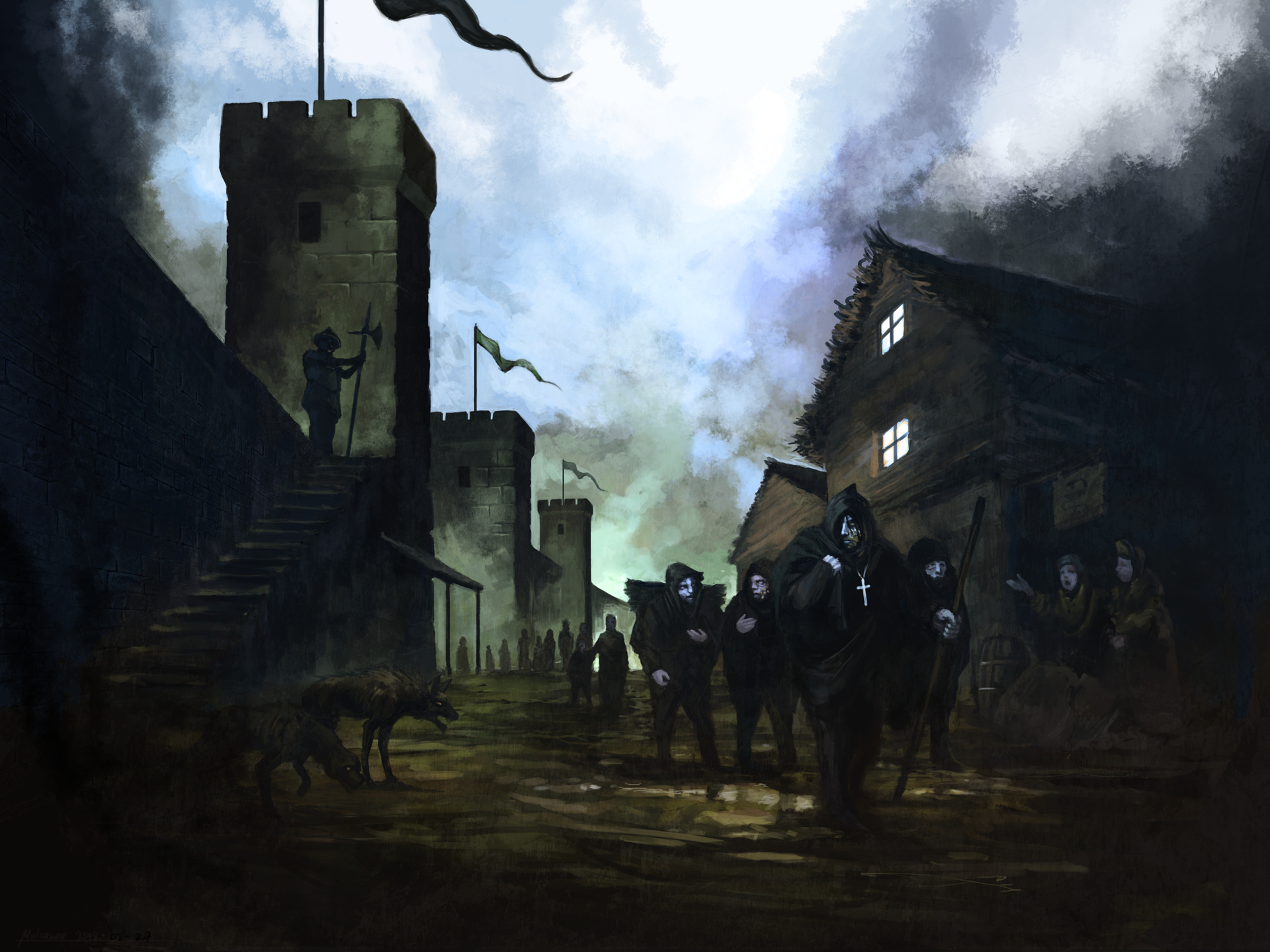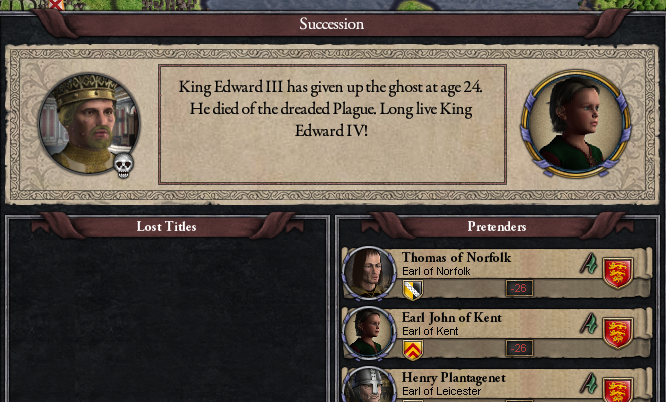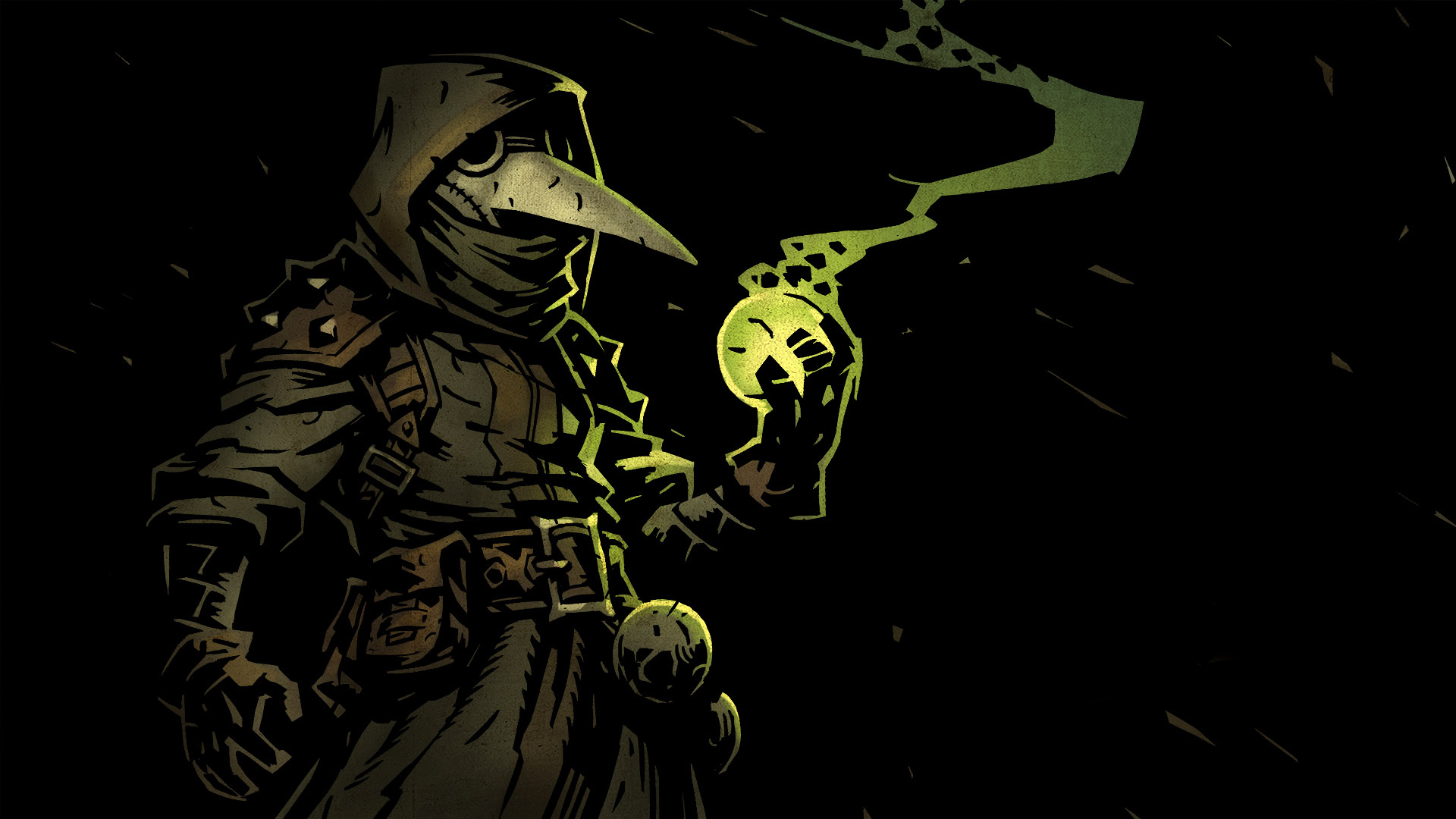
Perhaps the greatest foe across all human history gets a pretty raw deal in strategy games. I’m not talking about Napoleon or Attila, a toxic political ideology, or jeggings. I’m talking about the microscopic brigands who hitch rides in our otherwise healthy bodies, spread from person to person, and have a tendency to kill the crap out of us: the Black Death.
Historians love to argue, but it’s uncontroversial to say that this disease has had massive, ongoing, far-reaching effects for mankind. The Black Death swept through Europe in the 1300s killed at least 50 million people worldwide—and that’s the low estimate. We’re talking about somewhere around a third of the overall population on the continent, and possibly as many as half in urban centers like Paris.
If a similar proportion of people died in the United States today, the body count would pass the 100 million mark. Imagine half the people in New York City, LA, or the San Francisco Bay Area keeling over in the space of less than a decade. It would change the world forever. And the Black Death did. Hysteria ensued. Economies were transformed. Areas under human cultivation for centuries were reclaimed by nature with no one to till the fields, and the workers remaining found themselves in excellent bargaining positions with their once-untouchable feudal overlords due to a dire labor shortage.
In reality, disease has killed more soldiers in many historical wars than other soldiers.
Considering how huge a deal the plague was socially, economically, and even religiously, you’d think a pop-up heralding the Black Death in Crusader Kings II would induce total panic. It doesn’t. Those jerk-ass Khazars launching minor raids into my frontier regions are a much greater concern. The plague is a blip on the economic radar, reducing tax income by 80% in affected regions (which is a lot, but does not present a long-term problem considering CK2 handles debt in a much more forgiving way than, for example, Europa Universalis IV) and causing the troops stationed there to take moderate casualties. A handful of named characters at my court might keel over. If I’m really unlucky, someone who matters might be among them. After it’s passed, the world remains almost indistinguishable from when it came, as if an uncomfortable El Niño had passed over it.
Medieval 2: Total War models the plague similarly, with punishing but transient economic penalties. The infection rate for named characters is higher, but keeping them away from city centers is a fairly effective vaccination. Wars in both these games can be influenced by armies taking attrition from the outbreak and changing the balance of power, but it’s a rare edge case that it actually decides the outcome. In reality, disease has killed more soldiers in many historical wars than other soldiers— two thirds of the casualties in the Civil War were from disease, and Napoleon’s French army lost over twice as many men to disease as to combat, to name a couple. Pox and plague ambushing the camps have swung many conflicts wildly in one direction or another.

Down with the sickness
The reasons for downplaying pandemics in games are understandable. Who wants to play a strategy game where your troops or populace suddenly and arbitrarily die? As Sid Meier says, a strategy game is a series of interesting choices. Realism doesn’t universally translate to fun, and the reality of diseases like the Black Death is that there was no decision anyone at the time could have made to significantly dampen the chaos. Without inserting absurdly premature discoveries about germ theory and epidemiology, our hapless, digital kingdoms can’t click a button or tweak a slider to make the plague meaningfully less terrible.
Developers have used this argument to justify their tendency to overlook the historical impact of disease. Player agency is important, and not a lot of people like being told that a third of their populace is being carted through the streets to a pyre, including the king, and, by the way, your elite armies are evaporating from your battlements. I disagree with this methodology. It assumes that the goal of any historical strategy game is accumulation, or empowering players to methodically build the biggest and most successful empire of all time.
Keep up to date with the most important stories and the best deals, as picked by the PC Gamer team.
When I think about what draws me to a game like Crusader Kings II or Civilization V, it isn’t always the process toward some arbitrary victory. Many of my most memorable runs have gone down in flames, ending with a family tree full of cadavers cooling in the grave while bandits have their merry way with what used to be my countryside—not with spreading my color across every inch of habitable ground in my empire’s path. The amazing stories being co-written by the game engine and my own imagination (see the Crusader Kings Chronicles) are the true reward.
There are so many awesome possible tales that could come from a Black Death modeled with more unabated, historical brutality.
There are so many awesome possible tales that could come from a Black Death modeled with more unabated, historical brutality. Upending social structures, starting the embers of religious schism, and redefining the entire economy of the world you’re playing in could force powerful states to cling to a crumbling status quo, similar to the plight of the collapsing Western Roman Empire in Total War: Attila’s fantastic grand campaign. The aftermath could be presented as almost post-apocalyptic. It’s a new setting generated by events beyond your control, and you’re now challenged to adapt or die. And that’s all without even mentioning the fun of watching the world burn. Who doesn’t love catalyzing humanity’s final days in Plague Inc. or unleashing large-scale disaster on a sprawling, gleaming SimCity?

Real history is dramatic. As humans, we understand drama as an arc with ups and downs. Moments of triumph dance with periods of despair. Victory means more when it emerges from bleak adversity, and not every great story has a happy ending. Videogames have a huge, untapped opportunity to take a page from their tabletop cousins like the FATE roleplaying game, emphasizing that the players are acting in service of an interesting narrative, not in the ahistorically uninterrupted success of an empire.
Disease is a hugely destructive, unstoppable enemy that has laughed in the face of pre-modern humanity’s best efforts to build safe and stable societies. In addition to its potential for shaking up otherwise static strategic situations, it’s a compelling villain for the grand narratives these games can generate. Brutal pandemics could bring elements of the roguelike genre to strategy games. In Darkest Dungeon, my veteran, golden-boy crusader can come down with rabies, syphilis, and yes, even the Black Death. Like most turns of misfortune in that game, I have to figure out how to soldier on and deal with it. The onset of disease isn’t necessarily an interesting decision for you to make. It’s a harbinger of tougher decisions ahead, and a compelling reminder that history is fickle, and humanity doesn’t always have a strong hand on the tiller of its own fate.
Len Hafer is a freelancer and lifelong PC gamer with a specialty in strategy, RPGs, horror, and survival games. A chance encounter with Warcraft 2: Tides of Darkness changed her life forever. Today, her favorites include the grand strategy games from Paradox Interactive like Crusader Kings and Europa Universalis, and thought-provoking, story-rich RPGs like Persona 5 and Disco Elysium. She also loves history, hiking in the mountains of Colorado, and heavy metal music.

